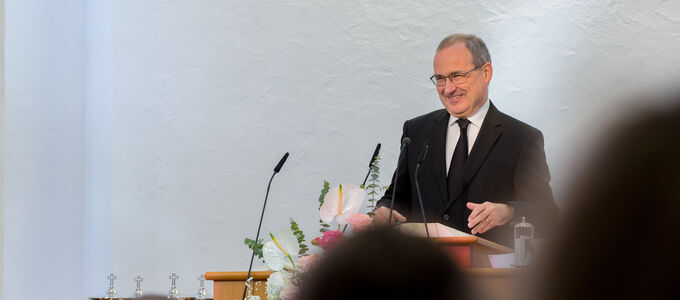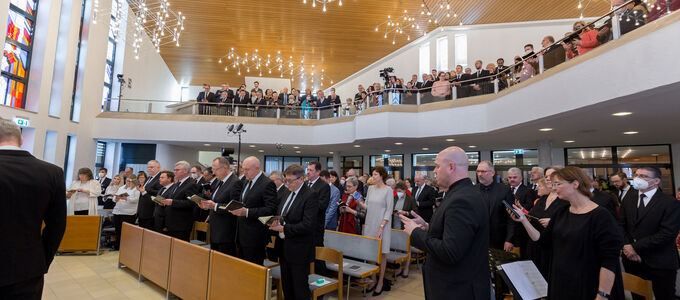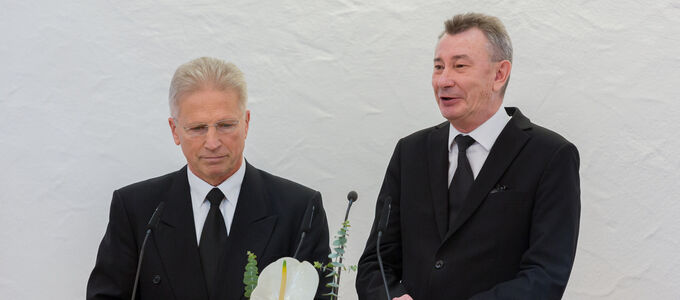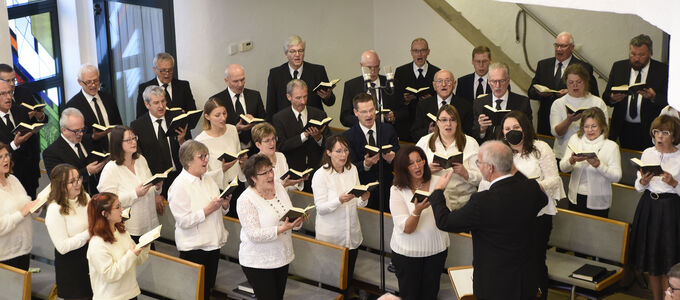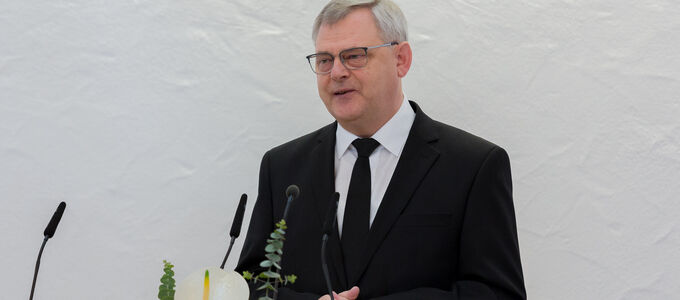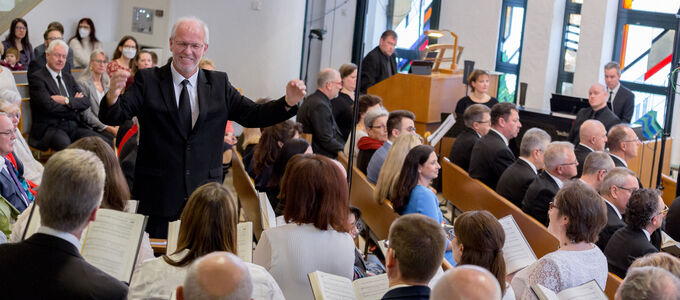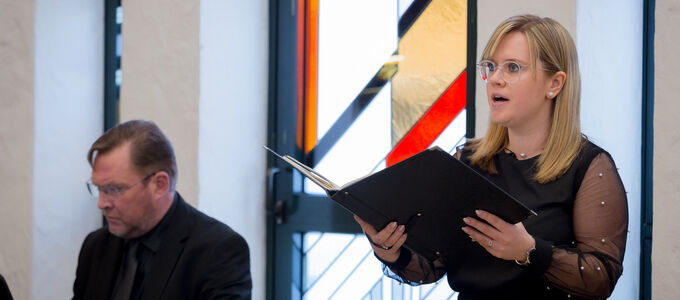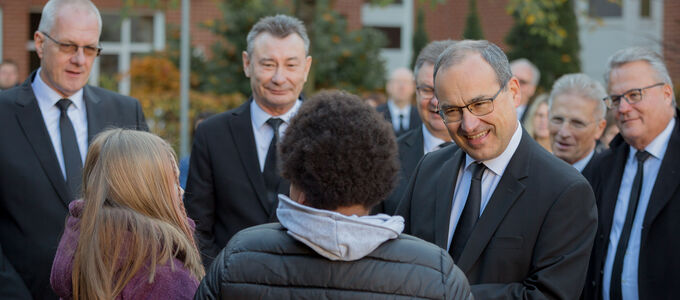
Jesus Christ and His church: how does this relationship function? A Bible passage that references the head, the body, and the feet promises to provide some enlightenment. And even these verses pose something of a riddle in and of themselves at first.
“It’s so typical of Paul: you don’t even understand what he is really talking about. You have to read it three times first.” It was with these words that Chief Apostle Jean-Luc Schneider introduced the Bible text on 13 November 2022 in Nuremberg, Germany: “And He put all things under His feet, and gave Him to be head over all things to the church, which is His body, the fullness of Him who fills all in all” (Ephesians 1: 22–23).
“First of all, Paul explains that Jesus Christ is God,” said the Chief Apostle. “The fullness of God dwells in Jesus Christ and is revealed through Jesus Christ. Therefore Jesus Christ is fully God, and the full God is in Jesus Christ.” Secondly, he pointed out that Jesus is the head of the church. He is present in the congregation in the fullness of God. And thirdly, the members of the church have to grow so that they can become part of this fullness and attain this fullness.
Jesus Christ is God
The Chief Apostle also went on to detail the extent to which Jesus Christ reveals the fullness of God:
- in the Old Testament, the image of God was characterised by punishment. “And then along comes Jesus Christ and says, ‘I have not come to punish the sinners.’ The will of God is to save the sinners. That is a completely different image of God.”
- Jesus received all power from God: “Through His merit, through His victory, He has gained all authority.”
- Jesus’ goal is not to alleviate all suffering, the Chief Apostle said, but rather to liberate mankind completely from the evil one: Jesus can grant perfect and ultimate salvation.
Jesus rules His church
Jesus Christ is the head of the church. This means
- that He makes the rules: “He is the head, the boss, and He has decided the following: the important things are faith, our deeds, our works—not our words. And even more important than that is our motivation.”
- that He decides who belongs to it: regardless of whether you are, as Paul says, a Gentile or a Jew, a man or a woman. None of that is important! The important thing is that you have become a new creation in Christ!
- that only He can judge: “It is so typically human to think that the sins of our neighbour are much worse than our own,” the Chief Apostle continued. But it is not up to human beings to judge.
The fact that Jesus rules the church also means that the fullness of salvation is provided with His presence. “In His church, through the Apostles, Jesus Christ has provided everything a human being needs in order to attain perfect salvation.” No one will be able prevent Jesus from bringing His work to its perfection and completion.
And now let’s talk about the believers
The believers are to grow in Christ in order to receive the fullness of Christ. And the Chief Apostle explained exactly how this is supposed to work:
- growing in the knowledge of love: “If you want to come into the fullness of Jesus Christ, you must first acknowledge and recognise His perfect love.” The Chief Apostle went on to explain that the fact that God loves us does not mean that He will fulfil all our wishes. Rather: “The love of God will bring us into perfect fellowship with God.”
- growing in love ourselves: “Jesus has to become our all in all. Our relationship with God must become the most important thing in our lives.”
- loving as Jesus loves: “Well, how does the Lord love us? How does God love?” asked the Chief Apostle. “He loves all human beings unconditionally.” And this is exactly how the believers are to love their neighbour. And this also means accepting the fact that God grants the same salvation to this neighbour.
“However, Paul also says that the whole body must grow to the full measure of the fullness of Jesus Christ.” This means that Jesus Christ must be revealed in this world through the church. And that we are called to act in the name of God, to love in the name of God, and to help in the name of God. Through their words and deeds, believers can reveal the fullness of God. And this doesn’t have to be perfect either. After all, God comes “with His grace and fills up whatever is still lacking, whatever has not yet developed among the faithful“.
“Such a complicated passage,” said the Chief Apostle in closing: “But actually, we can almost understand it now.”







